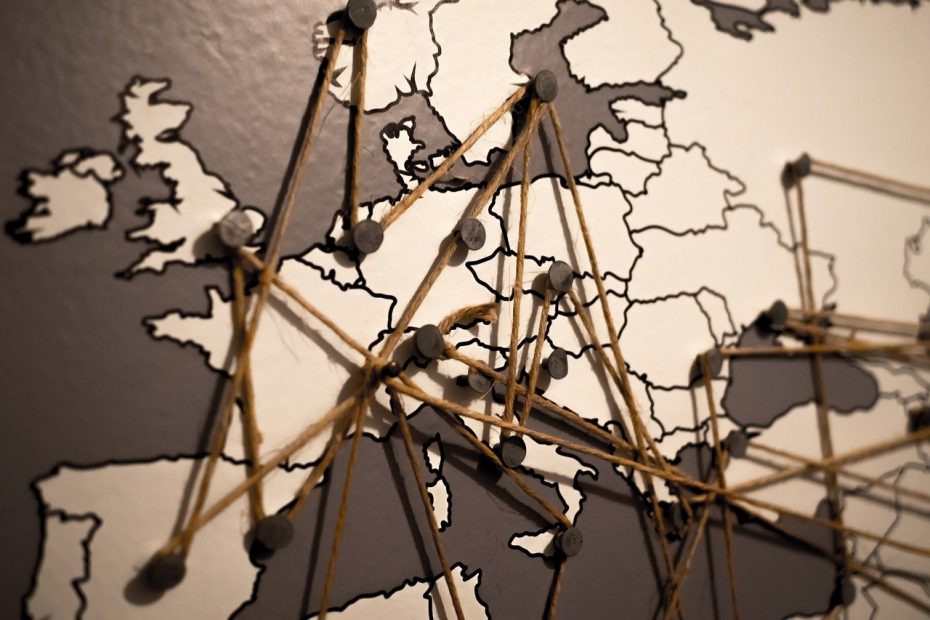The European Union is an area without borders. Thus, the concept of import or export disappears when it comes to the exchange of goods from one country to another within the EEC.
I – Intra-community deliveries
They are defined as the delivery of tangible goods shipped from one country to another country of the EEC. These deliveries are exempt from VAT in the country of departure of the goods if the following conditions are met:
Delivery is not free,
The seller is considered as a VAT payer and acts as taxable person,
Movable property must really be shipped or transported from one EEC member country to another EEC State, the documents proving the reality of the transport as well as the sales invoices must be kept,
The acquirer must have the status of taxable person, to exempt the sale from VAT, the seller must ask the buyer for his VAT identification number and ensure that it is valid.
The exemption of the delivery does not call into question the right of deduction of the seller on the acquisition or the cost of manufacture of the goods.
II – Intra-community acquisitions
This is the operation that follows an intra-Community supply, i.e. the acquisition of goods sent from one member state of the EEC to another member state.
This operation is imposed in the state of destination of the goods or in the state where the acquirer has a VAT identification number.
The tax system is as follows:
- The VAT must be paid spontaneously by the purchaser in the State of receip of the goods at the rate and according to the conditions applicable in this country,
- Movable property must be acquired by a taxable
- person (this scheme does not concern purchases made by individuals),
- Some intra-Community acquisitions are exempt, this concerns a very specific number of cases that we will not list in this article, If you want to know the details, do not hesitate to ask one of our chartered-accountants who speaks English.
III – Special regimes
There are a number of transactions that derogate from the rules explained above. We will define them without going into details.
1. Distance sales
These are deliveries of goods shipped by the seller (or on his behalf) when the buyer is an individual or a P.B.R.D. (for the definition of P.B.R.D. see point N ° 6).
In this case the VAT is always due by the seller.
2. New means of transport
This mainly concerns the sale of motorized land vehicles, boats over 7.5 m long and aircrafts over 1550 kg.
VAT is due in the EU Member State of destination of the means of transport.
3. Sale by consignment, on deposit or at a dealer
These are sales where the supplier deposits goods with his client that do not become the client’s property until he resells them to another person.
VAT rules may be different depending on the transaction. An accountant is at your disposal to study, if necessary, your particular case.
4. Trial sales
These are sales made under the condition precedent of a test of the product.
VAT is due only at the time of transfer of ownership.
5. Triangular operations
It is the sale of a movable property by a seller subject to VAT (A) to a buyer (B) located in another state. This buyer (B) resells the property to a person subject to VAT (C) located in a different state from the other two. The property is shipped directly to the buyer (C) by the seller (A).
The operation can be simplified and thus the VAT is paid by the recipient of the delivery.
6. P.B.R.D.
This concerns people who do not have to submit VAT for their intra-community acquisitions:
- Non-taxable persons because of their activity,
- Taxable persons benefiting from the franchise.
Under these conditions VAT is due in the country of departure of movable property provided that the purchaser does not exceed an annual amount of intracom purchases. A maximum threshold is defined for each European state.
In conclusion, it should be pointed out that companies which are currently producing exports or intra-Community supplies, may purchase VAT-free goods or elements of operations contributing to the production of goods intended for intra-Community sales or export.
This procedure thus prevents the operator from paying VAT on these goods and services and then requesting reimbursement.
Of course, we can explain the procedure for making these purchases free of VAT. Contact us!



